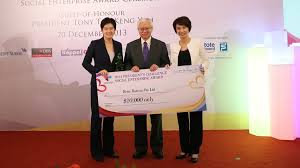Home
About Us
Page 2
2) From Data to Knowledge to Decisions - This dimension is meant to address the development of algorithms for the collection of multi-scale clinical, biomedical, contextual, and environmental data concerning every patient which would create a window towards the establishment of decision support tools that could potentially optimize a patient-centered and evidence-based practice.
|
|
3) Empowering Individuals - This dimension will have to include strategies that could help determine socioeconomic and behavioral principles that could influence a patient's participation in healthcare and wellness activities.
4) Sensors, Devices and Robotics - This dimension should include investigative approaches that will allow interoperable, temporally synchronized, medical prosthetic and embedded devices to continuously capture, store, and transmit physiological and environmental data.
The program will accommodate two types of project classes, the first one would the Exploratory Project, wherein they will award funds ranging from $200,000 to $600,000 with a project duration of two to three years. The second project class would be the Integrative Project wherein the NSF will award funds in the amount of $600,000 to $2,000,000 with a project duration of four to five years.
Researchers and investigators will only be eligible to submit an application for the Smart Health and Wellbeing Program if they are representing any of the following:
a) Universities and colleges including community colleges which campuses are located in the United States of America.
b) Non-profit, non-academic organizations such as independent museums, observatories, research laboratories, professional societies and other organizations that are associated with research and educational activities.
National Science Foundation's Smart Health and Wellbeing Program
Back to Page 1
About The Author Michael Saunders is an editor of TopGovernmentGrants.com one the the most comprehensive Websites offering information on government grants and federal government programs. He also maintains Websites providing resources on environmental grants and grants for youth programs. |
Additional Resources
category - Health Grants
Pilot Surveillance System for High Impact/Low Prevalence Congenital and Inherited Conditions Program
Development of Measures to Determine Successful Hearing Health Care Outcomes
Advanced Neural Prosthetics Research and Development Program
Telehealth Resource Center Grant Program
Follow @topgovtgrant
Social Entrepreneurship
Spotlight
3 Social Enterprises Earn Honors at Social Enterprise Award

Three social enterprises were recognized at the 2013 President’s Challenge Social Enterprise Award for their major contributions to society. SATA CommHealth and Bliss Restaurant landed Social Enterprise of the Year titles, while Bettr Barista Coffee Academy bagged the award for Social Enterprise Start-up of the Year.
